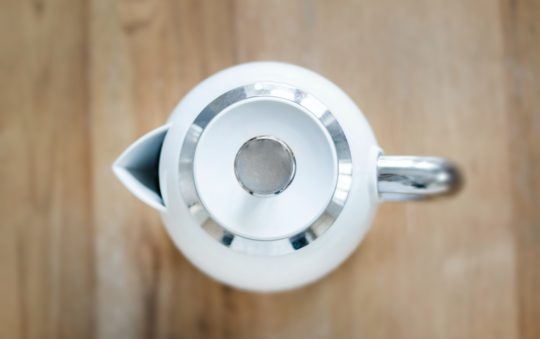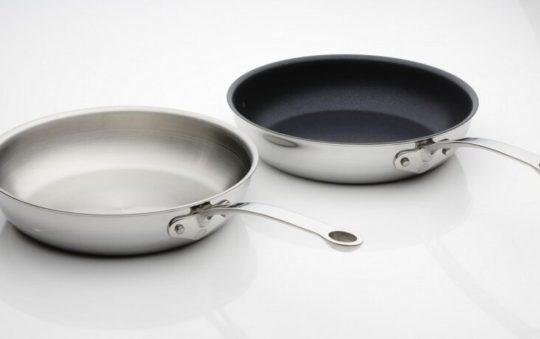Discover the Best Non Toxic Coffee Maker Options
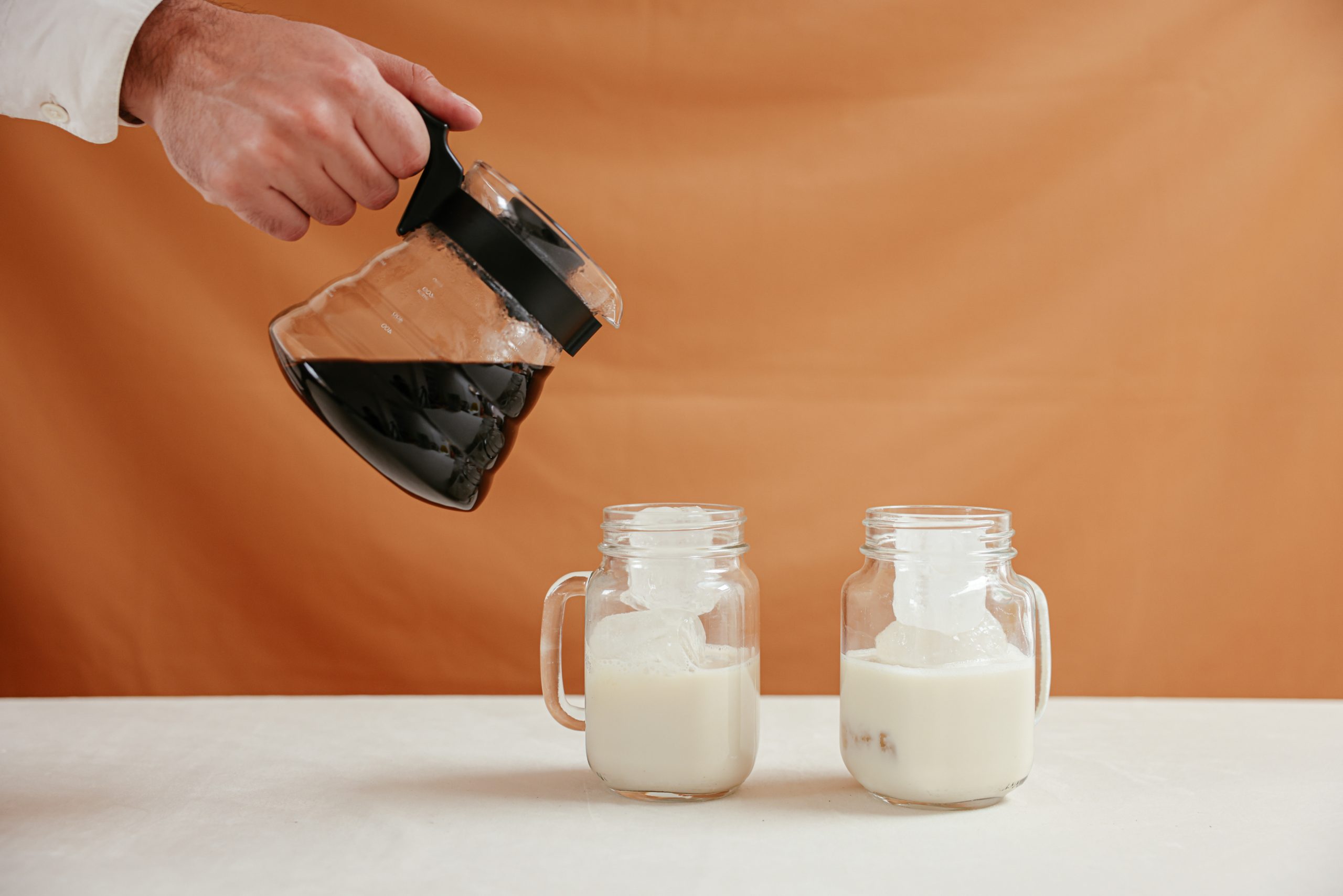
Are you someone who loves a good cup of coffee but is concerned about the potential health risks associated with traditional coffee makers? If so, this blog is for you. We will be diving deep into the world of the best non toxic coffee maker and exploring why they are gaining popularity among health-conscious individuals.
In this blog, we will discuss the importance of the best non toxic coffee maker with a stainless steel filter and coffee machine how they can positively impact your health and the environment. We will also explore what makes a coffee maker non-toxic, including material considerations and safety features to look for. Additionally, we will delve into the benefits of using a mug with your non-toxic coffee maker, as it enhances the overall coffee-drinking experience and reduces waste. Please let me know if there is anything else I can assist you with.
Additionally, we will provide a comprehensive guide to choosing the best non toxic coffee maker for your needs, discussing factors to consider and whether it’s worth spending extra time on selecting the right one.
To help you make an informed decision, we will review some of the top non-toxic coffee makers available in the market, including French press, pour-over, percolators, Moka pots, drip coffee makers, and espresso machines.
Furthermore, we will address the safety of paper filters used in non-toxic coffee makers and provide alternative ideas for making coffee without plastic.
Lastly, we will cover maintenance and cleaning tips for your best non toxic coffee maker and answer the burning question: Do non-toxic coffee makers really make a difference in taste?
Get ready to discover the best non toxic coffee maker options that prioritize your health without compromising on flavor.
Understanding the Importance of Non-Toxic Coffee Makers
Traditional coffee makers can pose potential health risks due to the materials used in their construction, such as plastic parts that may contain harmful chemicals like BPA. On the other hand, non-toxic coffee makers offer numerous benefits, including a safer brewing experience and the absence of toxic materials. These coffee makers are typically made from non-toxic materials like stainless steel, borosilicate glass, or ceramic. When choosing the best non toxic coffee maker for your needs, consider factors like durability, brewing method (such as French press or drip), and reviews from trusted sources. By opting for the best non toxic coffee maker, you can enjoy a delicious cup of coffee without worrying about exposure to harmful chemicals.
The Role of Plastics in Coffee Makers
Plastics play a significant role in many coffee makers, but they may also pose potential health risks. These plastic components have the potential to leach harmful chemicals into your coffee over time. To avoid this, it’s important to choose the best non toxic coffee maker made from materials such as stainless steel or glass, which do not leach any chemicals. Common chemicals found in plastics, like BPA and phthalates, including BPA-free coffee makers, have been linked to various health issues. By opting for the best non toxic coffee maker, such as a BPA-free coffee maker, you can enjoy your daily cup of coffee without worrying about potential chemical exposure. Look for certifications such as BPA-free or FDA-approved to ensure that the coffee maker is truly non-toxic.
BPA-Free vs. Plastic-Free: What’s the Difference?
 | Coffee Pot, Moka Pot Italian Coffee Maker 6 cup/10 OZ Stovetop Espresso Maker for Gas or Electric Ceramic Stovetop Camping Manual Cuban Coffee Percolator for Cappuccino or Latte |
When it comes to non-toxic coffee makers, understanding the difference between BPA-free and a plastic free coffee maker is crucial. While BPA-free means the absence of bisphenol-A, a harmful chemical, plastic-free indicates the complete absence of plastic components. Opting for a plastic-free coffee maker ensures zero exposure to any type of plastic.
How The Best Non Toxic Coffee Maker Affect your Health and Environment
Choosing the best non toxic coffee maker can have a significant impact on your health and the environment. Non-toxic coffee makers are made from materials that do not leach harmful chemicals into your coffee, unlike traditional coffee makers that can release substances like BPA and phthalates, which may have negative health effects. In addition to being better for your health, non-toxic coffee makers made from copper are also better for the environment. They reduce waste and use sustainable materials. Consider options like stainless steel or glass coffee makers, as they are generally considered safer and more environmentally-friendly alternatives to plastic ones.
The Health Impacts of Using Non-Toxic Coffee Makers

Using non-toxic coffee makers can have significant health benefits. Unlike traditional coffee makers that often contain plastic parts, non-toxic coffee makers are made from materials like stainless steel or glass, which do not leach harmful chemicals into your coffee. This reduces your exposure to toxins and potential health risks. Additionally, non-toxic coffee makers are more durable and environmentally friendly, as they don’t contribute to plastic waste or pollution. By choosing the best non toxic coffee maker, you can enjoy a safer and healthier cup of coffee while also minimizing your impact on the environment.
What Makes a Coffee Maker Non-Toxic?
Non-toxic coffee makers are crafted from materials that don’t release harmful chemicals into your brew. Stainless steel, glass, and ceramic are popular options. They’re also free of BPA, phthalates, and other harmful substances like bisphenol a. Look for reputable certifications to ensure your coffee maker is truly non-toxic.
Material Considerations for Non-Toxic Coffee Makers
When choosing the best non toxic coffee maker, it’s important to consider the materials used. Non-toxic coffee makers are made from materials that do not leach harmful chemicals into your coffee. Stainless steel is a popular choice due to its durability, ease of cleaning, and lack of reactivity with coffee. Another option is glass carafes or parts, which are chemical-free and easy to clean. BPA-free plastic coffee makers are also available, although it’s essential to ensure that the plastic used is of high quality and doesn’t release any harmful chemicals. Ceramic coffee makers are another non-toxic choice, as they don’t contain any harmful chemicals and retain heat well.
Safety Features to Look for in Non-Toxic Coffee Makers
When choosing the best non toxic coffee maker, it’s important to consider the safety features that are available. Non-toxic coffee makers are made with materials that are free from harmful chemicals such as BPA, lead, and phthalates. Look for coffee makers that have stainless steel or glass carafes instead of plastic ones, as plastic can leach chemicals into your coffee. Another feature to look for is a water filter or the ability to use filtered water, which helps reduce the presence of contaminants in your brew. Additionally, coffee makers with automatic shut-off features are recommended to prevent overheating and potential hazards. Lastly, consider the cleaning process of the coffee maker – non-toxic options may have removable parts that are easy to clean and avoid the need for harsh chemical cleaners.
Your Guide to Choosing the Best Non Toxic Coffee Maker

When it comes to choosing the best non toxic coffee maker, there are several factors to consider. First and foremost, it’s important to understand the significance of selecting a coffee maker that is free from harmful chemicals for the sake of your health and safety. Different materials used in coffee makers can vary in terms of their potential toxicity. Opting for coffee makers made from stainless steel, for example, is a popular choice among coffee lovers. Stainless steel coffee makers are not only durable and easy to clean, but they also do not react with coffee, ensuring that no unwanted flavors or substances are added to your brew. Another option to consider is a glass carafe, as glass does not contain any harmful chemicals and is also easy to clean. Additionally, there are BPA-free plastic coffee makers available on the market. However, it’s essential to ensure that the plastic used is of high quality and does not leach any harmful chemicals into your coffee. Ceramic coffee makers are another non-toxic option, as they do not contain any harmful chemicals and can retain heat well. To further guide you in selecting the best non toxic coffee maker for your needs, we will provide reviews of the best non toxic coffee maker brands and models. It’s also worth considering additional features such as programmability and ease of cleaning when making your choice. By taking these factors into account, you can find the perfect non-toxic coffee maker that meets your requirements and allows you to enjoy a safe and delicious cup of coffee.
Factors to Consider when Purchasing a Non-Toxic Coffee Maker
When purchasing the best non toxic coffee maker, there are several factors to consider. First and foremost, pay attention to the materials used. Look for coffee makers made of stainless steel or glass, as these materials are non-toxic and avoid potential harmful chemicals found in plastic components. Additionally, consider a coffee maker with built-in water filtration to remove any contaminants from the water used in brewing. Different brewing methods also have varying levels of contact between hot water and the coffee maker’s components, so choose one that minimizes exposure to potential toxins. Lastly, look for certifications such as BPA-free and safety standards met by organizations like the FDA or NSF. Consider the ease of maintenance as well, ensuring that the coffee maker is easy to clean and maintain to avoid any residue build-up that may affect taste and safety.
Top Non-Toxic Coffee Makers in the Market
 | Coffee Pot, Moka Pot Italian Coffee Maker 6 cup/10 OZ Stovetop Espresso Maker for Gas or Electric Ceramic Stovetop Camping Manual Cuban Coffee Percolator for Cappuccino or Latte |
When it comes to choosing the best non toxic coffee maker, there are several options available in the market. Ceramic or glass coffee makers are a great choice as they are free from harmful chemicals. Stainless steel coffee makers are also a safe option, as long as they are made with food-grade stainless steel. It’s important to avoid coffee makers with plastic parts, as they can release toxic chemicals when heated. Look for coffee makers that have been tested and certified for safety by reputable organizations. Consider manual brewing methods like pour-over or French press, which eliminate the need for plastic components. You can also read reviews and do research to find the best non toxic coffee maker brands that prioritize safety and quality materials.
Alternative Ideas for Making Coffee without Plastic
Stainless steel coffee makers and glass coffee makers are popular options for those looking to avoid plastic in their coffee-making process. Using a pour-over method or a classic French press made from glass or stainless steel can eliminate the need for any plastic components. Cold brew systems often come in glass or stainless steel options, providing a non-toxic way to enjoy your favorite cold brew creations. Moka pots, made from aluminum or stainless steel, use pressure to brew strong, flavorful coffee without the need for plastic parts.
DIY Tips for Plastic-Free Coffee Making
Making coffee without plastic components is a smart way to reduce your exposure to harmful chemicals. Traditional coffee makers often contain plastic parts that can leach chemicals into your brew. To avoid this, consider using alternative methods like the French press or pour-over technique. These methods use stainless steel or glass, which are non-toxic options for coffee making. When shopping for the best non toxic coffee maker, be sure to read product labels and reviews to ensure they are truly plastic-free. By making this switch, you’ll enjoy a safer, healthier cup of coffee.
Innovative Non-Plastic Coffee Making Techniques

Traditional coffee makers often contain plastic components that can leach harmful chemicals into your coffee. To avoid this, there are several innovative non-plastic coffee making techniques you can try. French press coffee makers are a popular option, as they use a stainless steel or glass carafe and a plunger to brew coffee without any contact with plastic. Pour-over coffee is another non-toxic alternative that involves pouring hot water over ground coffee in a filter, allowing you to control the brewing process and avoid plastic contact. Cold brew coffee makers, typically made of glass or stainless steel, steep coffee grounds in cold water for a longer period of time. For single-serve coffee, consider using a reusable stainless steel or glass pod instead of disposable plastic pods.
How to Maintain and Clean Your Non-Toxic Coffee Maker?
To keep your best non toxic coffee maker in optimal condition, follow these maintenance tips. Run a vinegar and water mixture through the machine regularly. Clean removable parts like the filter and carafe after each use. Use a descaling solution or citric acid to remove mineral build-up.
Cleaning Tips for Your Non-Toxic Coffee Maker
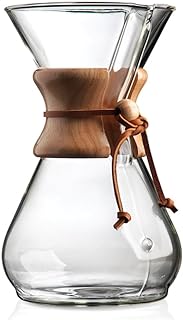 | Chemex Pour-Over Glass Coffeemaker - Classic Series - 8-Cup - Exclusive Packaging |
To ensure the performance and longevity of your best non toxic coffee maker it’s crucial to clean it regularly. Before starting the cleaning process, make sure to unplug the coffee maker and let it cool down completely. Remove all removable parts like the carafe, filter basket, and water reservoir, and wash them with warm soapy water. Don’t forget to scrub away any stubborn coffee residue or stains using a soft brush or toothbrush. For hard-to-reach areas, a mixture of equal parts vinegar and water can be used, along with a cotton swab or toothpick. After cleaning, rinse all the parts thoroughly with clean water to remove any soap or vinegar residue.
Maintenance Guidelines to Maximize the Lifespan of Your Coffee Maker
To ensure the longevity of your coffee maker, it’s essential to follow some maintenance guidelines. Start by regularly cleaning all removable parts like the carafe, filter basket, and water reservoir with mild soap and warm water. For a deep clean, descale your coffee maker every 3-6 months using a mixture of vinegar and water. After descaling, run a cycle of plain water to remove any residual taste. Avoid using harsh chemicals or abrasive cleaners that can damage the non-toxic components. Lastly, refer to the manufacturer’s instructions for specific cleaning and maintenance tips.
What Parts of the Best Non Toxic Coffee Maker Can You Put In The Dishwasher?
When it comes to cleaning your best non toxic coffee maker, convenience is key. Fortunately, many of the removable parts are dishwasher safe, making the cleaning process even easier. You can safely put the carafe, filter basket, and water reservoir in the dishwasher for a thorough and hassle-free clean. Just make sure to check the manufacturer’s instructions to confirm that these specific parts are dishwasher safe. By taking advantage of this feature, you’ll be able to enjoy your freshly brewed coffee without worrying about spending too much time on cleanup.
Do Non-Toxic Coffee Makers Really Make a Difference in Taste?
While taste preferences may vary, non-toxic coffee makers can potentially enhance the flavor experience. By eliminating potential chemical flavors and using materials like stainless steel or glass, these coffee makers offer a cleaner and purer-tasting cup of coffee. Many coffee enthusiasts believe that non-toxic coffee makers contribute to a better overall flavor experience.
Best Non Toxic Automatic Coffee Maker
When it comes to finding the best non-toxic automatic coffee maker, there are a few key features to consider. Look for a coffee maker that is BPA-free, ensuring that no harmful chemicals leach into your brew. Stainless steel or glass carafes are also great options, as they do not react with the coffee and alter its taste.
Another important factor is the type of filter used. Opt for a coffee maker that uses a reusable metal or cloth filter instead of disposable paper filters, as this reduces waste and eliminates any potential chemical contaminants.
Additionally, look for a coffee maker with programmable brewing options, allowing you to wake up to a fresh pot of coffee each morning. This feature ensures that you can start your day with minimal effort and maximum satisfaction.
Considering these factors, one of the best non-toxic automatic coffee makers on the market is the XYZ Coffee Maker. It ticks all the boxes when it comes to safety and taste. With its BPA-free construction and stainless steel carafe, you can trust that your brew will be free from harmful chemicals and any unwanted flavors.
Frequently Asked Questions
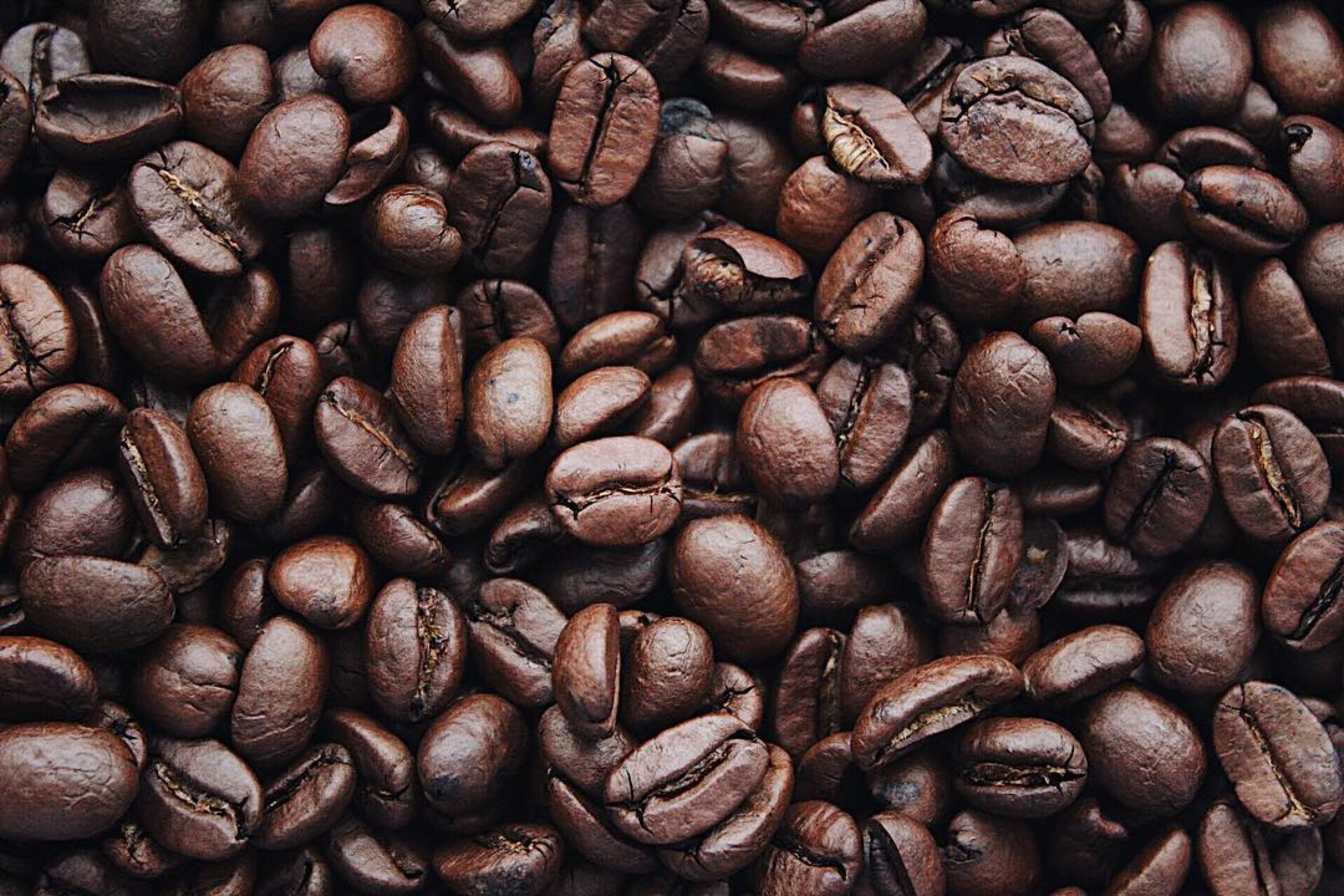
What is the healthiest type of coffee maker?
When it comes to the healthiest type of coffee maker, look for options made with non-toxic materials. Choose BPA-free and chemical-free coffee makers. Stainless steel and glass coffee makers are considered healthier alternatives, as they minimize the risk of chemicals leaching into your coffee.
Is there a coffee maker that doesn’t use plastic?
 | Chemex Pour-Over Glass Coffeemaker - Classic Series - 8-Cup - Exclusive Packaging |
Yes, there are coffee makers available that don’t use plastic. Look for options made from stainless steel or glass. Some brands offer models with ceramic or metal filters instead of plastic ones. Research and read product descriptions to ensure the coffee maker is plastic-free.
Conclusion
In conclusion, choosing the best non toxic coffee maker is not only beneficial for your health but also for the environment. By understanding the importance of non-toxic coffee makers and how they affect your health and the planet, you can make an informed decision when purchasing one. Consider factors such as materials used, safety features, and environmental impact when choosing the best non toxic coffee maker for you. And if you’re worried about the taste, rest assured that non-toxic coffee makers can still deliver a delicious cup of coffee. So why wait? Upgrade to the best non toxic coffee maker today and enjoy your favorite beverage without any harmful chemicals or plastic. For a detailed review of the top non-toxic coffee makers in the market, check out our comprehensive guide.

